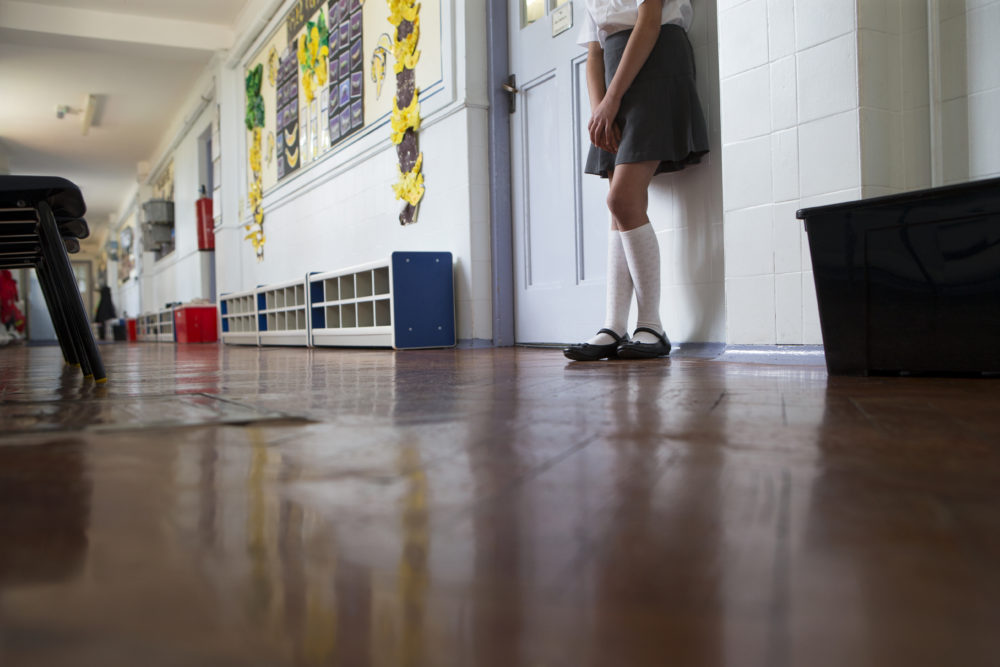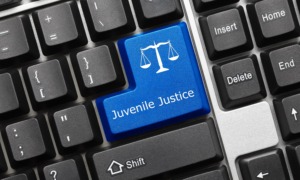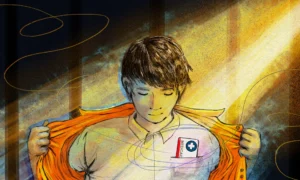A June 2021 report from the U.S. Department of Education found that, from the 2015-16 through 2017-18 school years, there was a 5% spike in the number of on-campus students arrests and a 12% increase in police answering calls to campuses.
The prospect of their children being added to that rising count is a major concern for many parents, especially as classes resume amid a pandemic that has thrown many students off-course.
That report from the education department’s civil rights office, covering almost every public school in the 50 states, District of Columbia and Puerto Rico, found, for example, that Black students were 15.1% of all kindergarteners through 12th-graders enrolled nationwide in 2017-18. But they comprised 31.4% of students punished with in-school suspensions, 38.2% of those with out-of-school suspensions, 38.8% of students expelled with educational services and 33.3% of those expelled without educational services. Additionally, Blacks were 28.7% of students referred to law enforcement and 31.6% of those who were arrested while in school
Plus, Black students covered by the Individuals with Disabilities Education Act comprised 2.3% of all students nationwide, but 8.8% of those suspended out-of-school and 9.1% of those arrested.
Those same metrics were comparatively high for other students of color, including those who are Native American, Native Hawaiian or/Pacific Islander, groups comprising some of the smallest pool of students.
The racial breakdowns of student punishments, district by district, are on the Department of Education Office of Civil Rights Data Collection site.
OF PRESCHOOLERS, BLACKS WERE MOST OFTEN EXPELLED
This criminalization begins astonishingly early, according to the report. Black children, for example, comprised only 18.2% of preschool enrollees but 38.2% of preschool expulsions and 43.3% of out-of-school preschool suspensions in 2017-18.
I repeat: Preschool.
Too often, educators and law enforcement officials devote themselves to seeing some young peoples’ mistakes, and even to imagining infractions where none exist. Parents understand that despite their own view of their children, too many adults in schools across the country particularly see children of color, children with disabilities and LGBTQIA+ students, another group at higher risk of being criminalized while in school, as inherently flawed.
Kids who are wrongfully criminalized often suffer emotional and mental trauma, self-isolation and self-harm. Their education and sometimes their entire future get disrupted and derailed. These are not new areas of concern. As early as 2003, the American Academy of Pediatrics recommended that, “Out-of-school placement for suspension or expulsion should be limited to the most egregious circumstances.”
For community members of all backgrounds, the focus must be on changing both policy and practice to address racial disparities in discipline at all levels: From suspensions and expulsions to law enforcement referrals and school-based arrests. One way to achieve this is by being allies to a youth-led movement calling for police-free schools and by supporting the proposed federal Counseling Not Criminalization in Schools Act, which would replace more school police with mental and behavioral health counselors.
FEDERAL PROPOSALS TO LIMIT SUSPENSIONS AND ARRESTS
United Methodist Women, my own organization, is supporting federal legislation aimed at stopping school-based criminalization of kids, including the proposed Ending Punitive, Unfair, School-based Harm that is Overt and Unresponsive to Trauma (Ending PUSHOUT) Act.
United Methodist Women is aligned with and learning from students, parents, educators and advocates of the Dignity In Schools Campaign and other leading voices in the movement for systemic change. As another example of our efforts, thousands of our members and friends across the country joined in an intensive study of Monique Morris’ book, “Pushout: The Criminalization of Black Girls in Schools.” For members unaware of how racism and sexism factor into the equation, it was an eye-opener. For others, it was familiar ground. They had lived experience in their own classrooms, as teachers, school administrators or parents.
For people of faith, the focus must be on getting involved in not just our children’s education but in the education of our neighbors’ kids as well.
For educators, the focus must be on internal anti-racism work to ensure biases aren’t projected onto children and youth. Racial bias, combined with over-policing, produces dreadful outcomes, including those documented by the Advancement Project’s “We Came To Learn” report.
As many schools reopen this fall, we must ask ourselves some hard questions. Will children have the comprehensive support they need to adjust to the return to school during a pandemic, with all its restrictions? Or will they face increasingly hardened school climates that are heavily reliant on school resource officers, who are sworn law-enforcement, but light on social workers, counselors, nurses and other behavioral and mental health support personnel?
Our schools must embrace a trauma-informed approach in response to COVID-19 and the myriad non-COVID-related harms of these times.
As parents, students and educators prepare to go back to school, it is incumbent on school districts and community groups to partner to address learning loss, trauma and depression that skyrocketed while schools were shuttered — alongside other traumatic experiences, outside of schools, that too often shape the lives of young people.
It is no secret that once students fall behind, no one wins. Children become more susceptible to expressing their frustration in counter-productive ways; and getting back on track becomes a Herculean task. Educators, school districts, all of us must respond with patience, not punishment.
Emily Jones is the executive for racial justice at United Methodist Women.
































